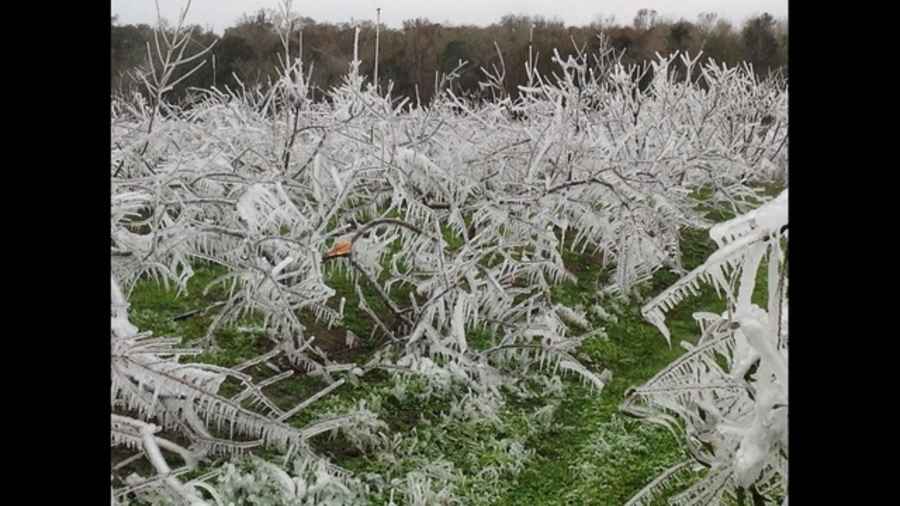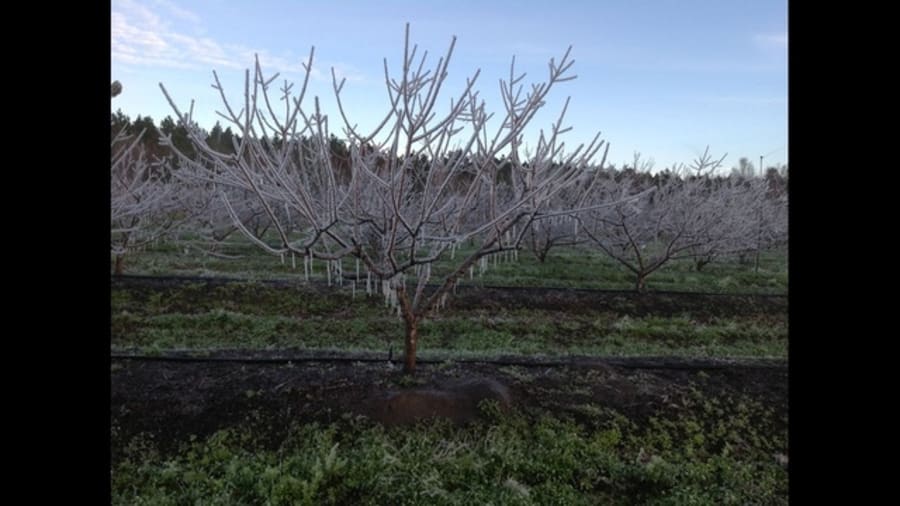As the freeze sets in this weekend many farmers will turn on irrigation sprinklers to protect plants from below freezing temperatures. But don’t try this at home.
Home sprinkler systems are not designed to deliver continuous water and may actually do more harm to ornamentals and turf. Improper use of water can increase cooling or ice loading and cause greater damage than if no water were used at all.
Recommended Videos
Blueberry and strawberry growers coat their crops with ice because the process gives off a layer of warmth as water converts to ice which can protect plants. However the techniques involved to accomplish this correctly offer little margin of error requiring specific water requirements and air temperature.


Ice coated plants need to stay coated with water all night otherwise the ice dries out drastically damaging vegetation with insulation. Farmers are successful because they have large irrigation systems that operate continuously unlike homes that irrigate in zone rotation.
Colder air requires more water per hour to be sprayed but most residential irrigation systems cannot vary the volume easily.
Beyond a temperature drop below 23-24 degrees F, any water will simply not help protect plants.
Ways to protect
The only time to water the grass is before the freeze so plants will be hydrated and dry before the dip. Then make sure to turn off your irrigation system.
It is best to cover plants with fabric while the ground is still warm and be sure there are no exposed gaps at the base of the plant. Remove the covers during the day and avoid plastic plant covering materials. Overturned garbage cans and incandescent Christmas lights can also provide protection.



